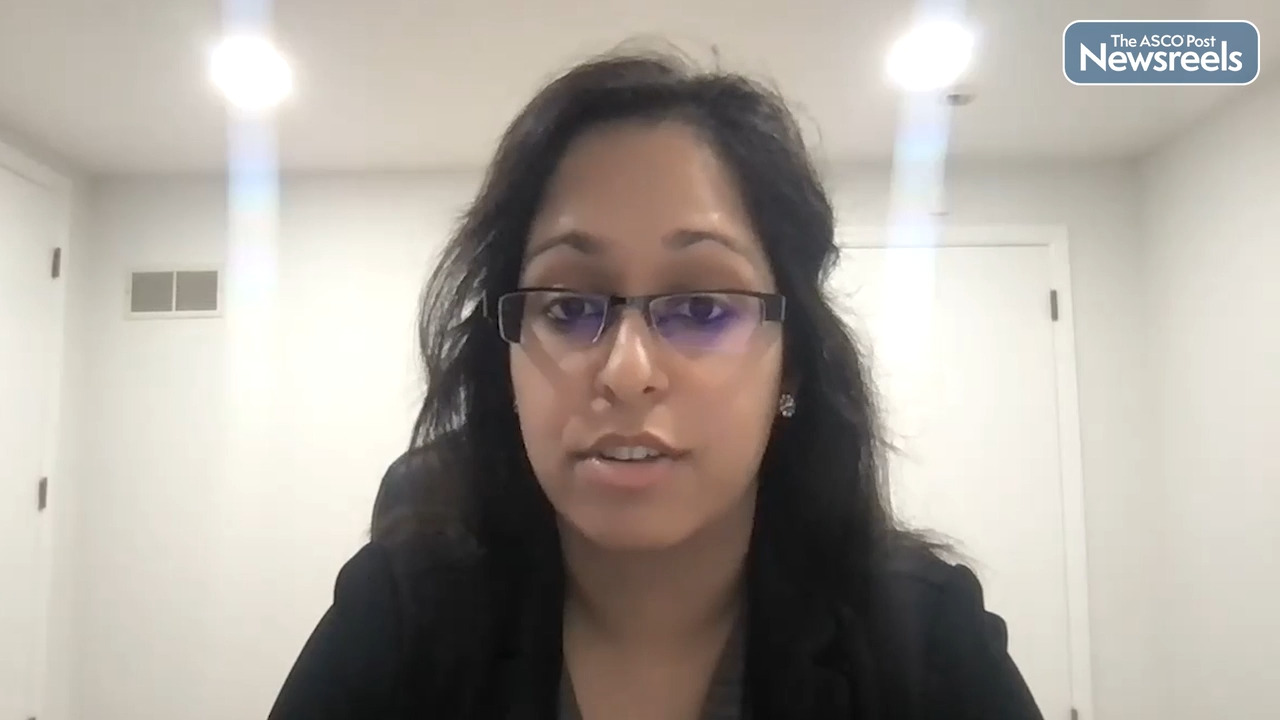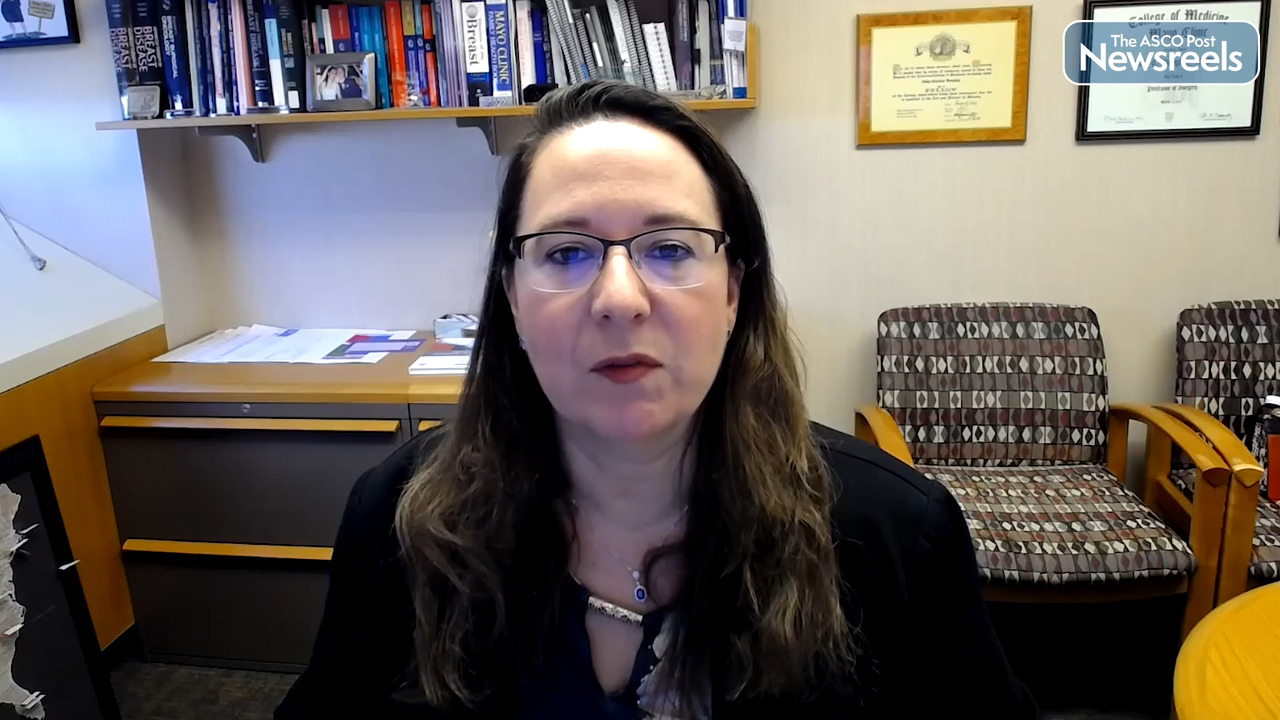Transcript
Disclaimer: This video transcript has not been proofread or edited and may contain errors.
This was a single arm trial and the reason for that was because both surgeons, and more importantly patient advocates working on the design of the trial felt like women would vote with their feet and wouldn't want a coin flip to determine whether or not they would undergo mastectomy or breast conserving surgery. So on the single arm trial, 204 patients were accrued and were eligible for the primary endpoint, which was local recurrence. They were treated with surgery, which could be through one or through multiple incisions, as long as it was margin negative excisions. And the patients then were treated with whole breast radiation with boost to one or to multiple lumpectomy cavities, and then underwent systemic therapy, which was at the discretion of the treating oncologist. Although endocrine therapy in the ER positive patients was of course, strongly recommended. The patients were followed for a total of five years biannually.
What we found in the trial is when we looked at all comers, the local recurrence rate was 3.1% at five years, and we had set for the trial design 8% as our acceptable standard. So this was clearly well below our set point for local recurrence. What we found, not surprisingly, is in the patient population where endocrine therapy was omitted in women with ER positive disease, there was a significantly increased risk of local recurrence. So to our knowledge, this is the only prospective trial looking at women with multiple ipsilateral breast conserving surgery. We know from retrospective studies done in the modern treatment period that local recurrence really has been acceptable in this patient population, but the lack of prospective data has made some surgeons reluctant to undergo breast conserving surgery. So we're hopeful that these data, again, being collected prospectively, will help comfort surgeons who have been reluctant to perform lumpectomies in this patient population.
National and international guidelines also have been slowly transforming to include multiple ipsilateral breast cancer within the guidelines of patients appropriate for breast conserving surgery. But often there are caveats, for example, they need to be done through a single incision in a single lumpectomy. And when our data shows that the majority of patients actually had two or more separate lumpectomies and again, with acceptable local recurrence rates.
So we're really hopeful that these data help change practice and hope open options for breast conserving surgery in patients who choose to move in that direction. And I think this is really particularly important because when we look at aggregate data, we know that women undergoing breast conservation report improved quality of life and improved body image and self-esteem. So mastectomy may still be the right option for some patients. This does expand indications for breast conservation.
So we've looked at our secondary endpoints of the trial that were planned secondary endpoints, and these include cosmesis feasibility in terms of conversion to mastectomy rates, and also the ability for these patients to undergo appropriate radiation. And all of those have been positive findings. Our next step is to go back and look at longer term cosmetic outcome, because the concern is that with larger lumpectomies or multiple lumpectomy cavities as well as radiation, these patients may suffer from poor cosmesis. So we've published our two-year data and plan to go back and look at the five year cosmesis data.


